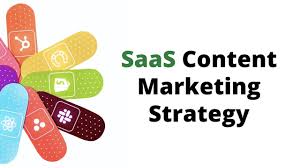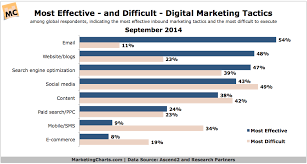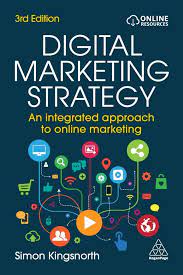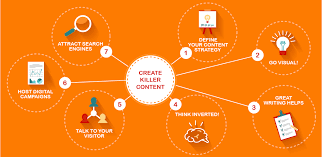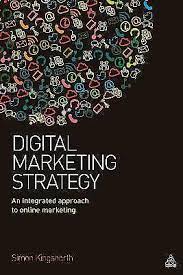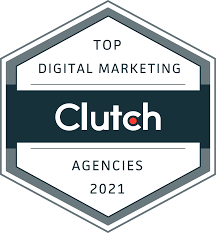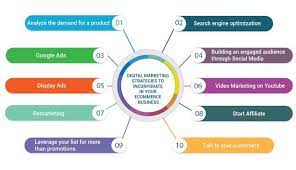The Power of SaaS Content Marketing Agencies
In the competitive world of Software as a Service (SaaS), effective marketing is crucial for success. SaaS companies rely on reaching and engaging their target audience to drive conversions and grow their customer base. This is where SaaS content marketing agencies play a vital role.
What is a SaaS Content Marketing Agency?
A SaaS content marketing agency specialises in creating and distributing valuable, relevant, and consistent content to attract and retain a clearly defined audience for SaaS businesses. These agencies understand the unique challenges and opportunities within the SaaS industry and tailor their strategies to meet the specific needs of SaaS companies.
The Benefits of Working with a SaaS Content Marketing Agency
Expertise: SaaS content marketing agencies have a deep understanding of the SaaS landscape and know how to create content that resonates with target audiences in this industry.
Strategy Development: These agencies can develop comprehensive content marketing strategies that align with the goals and objectives of SaaS businesses, helping them achieve long-term success.
Content Creation: From blog posts and whitepapers to videos and infographics, SaaS content marketing agencies produce high-quality content that educates, informs, and engages potential customers.
SEO Optimisation: By incorporating search engine optimisation (SEO) best practices into their content creation process, these agencies help improve the visibility of SaaS businesses online.
Conclusion
In conclusion, partnering with a SaaS content marketing agency can give your SaaS business a competitive edge in the digital landscape. By leveraging their expertise, strategic approach, and creative content creation capabilities, you can effectively reach your target audience, drive conversions, and ultimately grow your business in the dynamic world of SaaS.
Understanding SaaS Content Marketing Agencies: Key Services and Benefits
- What services do SaaS content marketing agencies offer?
- How can a SaaS content marketing agency help my business?
- What makes SaaS content marketing agencies different from traditional marketing agencies?
- How do SaaS content marketing agencies measure the success of their campaigns?
- What should I look for when choosing a SaaS content marketing agency?
What services do SaaS content marketing agencies offer?
SaaS content marketing agencies offer a range of services tailored to meet the specific needs of Software as a Service businesses. These services typically include content strategy development, content creation such as blog posts, articles, whitepapers, and videos, search engine optimisation (SEO) to improve online visibility, social media marketing to engage with audiences, email marketing campaigns to nurture leads, and analytics and reporting to track performance and make data-driven decisions. By providing a comprehensive suite of services, SaaS content marketing agencies help SaaS companies effectively reach their target audience, drive conversions, and grow their business in the competitive digital landscape.
How can a SaaS content marketing agency help my business?
A SaaS content marketing agency can significantly benefit your business by leveraging its expertise in creating and distributing tailored content to engage your target audience effectively. These agencies understand the nuances of the SaaS industry and can develop strategic content marketing plans that align with your business goals. From crafting compelling blog posts and informative whitepapers to producing engaging videos and infographics, a SaaS content marketing agency can enhance your online presence, drive traffic to your website, generate leads, and ultimately boost conversions. By harnessing their skills in SEO optimisation and content strategy, these agencies can help position your SaaS business as a thought leader in the industry, increasing brand visibility and attracting potential customers.
What makes SaaS content marketing agencies different from traditional marketing agencies?
SaaS content marketing agencies differentiate themselves from traditional marketing agencies through their specialised focus on creating and distributing content tailored specifically for the Software as a Service (SaaS) industry. These agencies possess a deep understanding of the unique challenges and opportunities within the SaaS landscape, allowing them to develop targeted strategies that resonate with SaaS audiences. Unlike traditional marketing agencies that may offer a broad range of services, SaaS content marketing agencies leverage their expertise to craft high-quality content, implement SEO best practices, and drive engagement that is specifically designed to meet the needs of SaaS businesses. By aligning their efforts with the nuances of the SaaS sector, these agencies can deliver tailored solutions that help SaaS companies stand out in a competitive digital marketplace.
How do SaaS content marketing agencies measure the success of their campaigns?
SaaS content marketing agencies measure the success of their campaigns through a variety of key performance indicators (KPIs) tailored to the unique goals of SaaS businesses. Common metrics include website traffic, lead generation, conversion rates, customer acquisition cost, customer lifetime value, and overall return on investment (ROI). By analysing these KPIs, agencies can track the effectiveness of their content marketing efforts, identify areas for improvement, and demonstrate the tangible impact of their campaigns on the growth and success of SaaS companies.
What should I look for when choosing a SaaS content marketing agency?
When selecting a SaaS content marketing agency, there are several key factors to consider to ensure you make the right choice for your business. Firstly, look for an agency with experience and expertise in the SaaS industry, as they will understand the unique challenges and opportunities that come with marketing SaaS products. Additionally, consider their track record of success with previous clients and their ability to develop tailored strategies that align with your business goals. It is also important to assess their content creation capabilities, SEO knowledge, and overall approach to digital marketing to ensure they can effectively reach and engage your target audience. Transparency, communication, and a collaborative working style are also essential qualities to look for in a SaaS content marketing agency to foster a successful partnership.

